11 July.
Today there are a lot of updates from the Kharkiv direction.
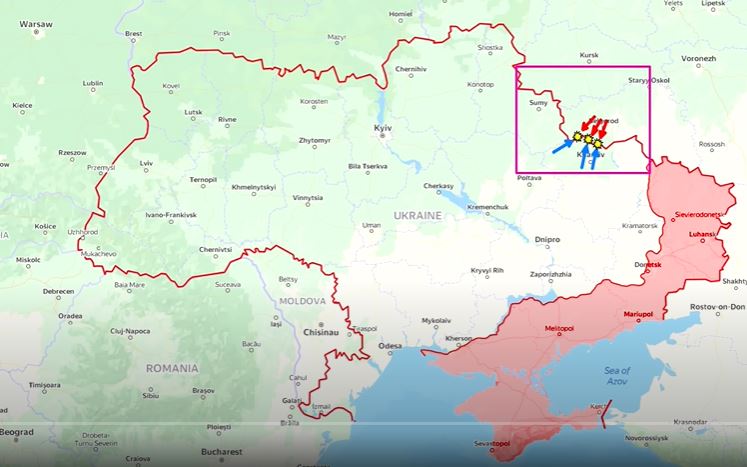
The most interesting news comes from the area of Lyptsi.

Here, the Russians degraded their main offensive forces to the point where the only way to compensate for the losses became the recruitment and deployment of mercenaries from Central Africa and Sri Lanka.
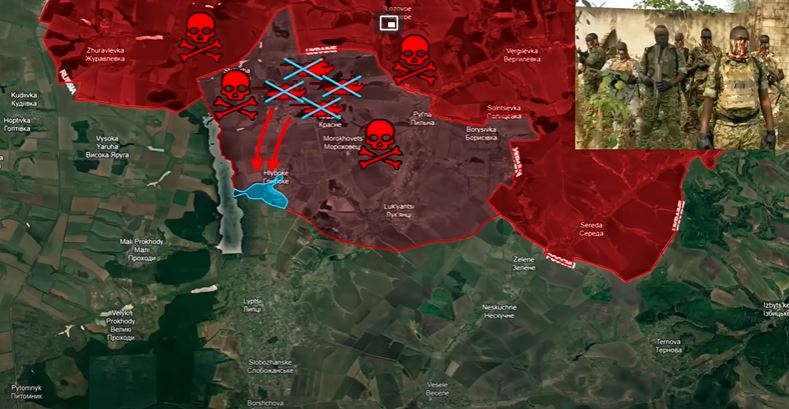
In this region, the Russians are struggling to advance with a limited number of troops, attempting to justify the Kharkiv offensive that has so far failed to achieve its declared objectives.
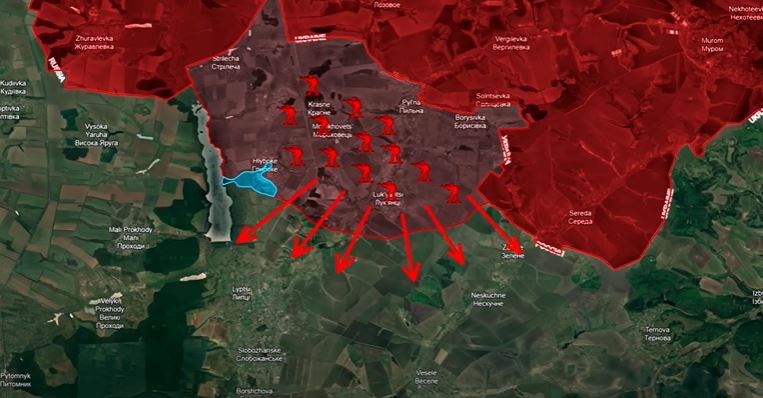
Approximately eight thousand Russian soldiers are engaged in the fighting in Kharkiv, significantly outnumbered by Ukrainian forces by at least three to one. Consequently, the Russians are unable to make headway due to fierce resistance and heavy losses. Without reinforcements, their position in the region is at risk of collapsing.
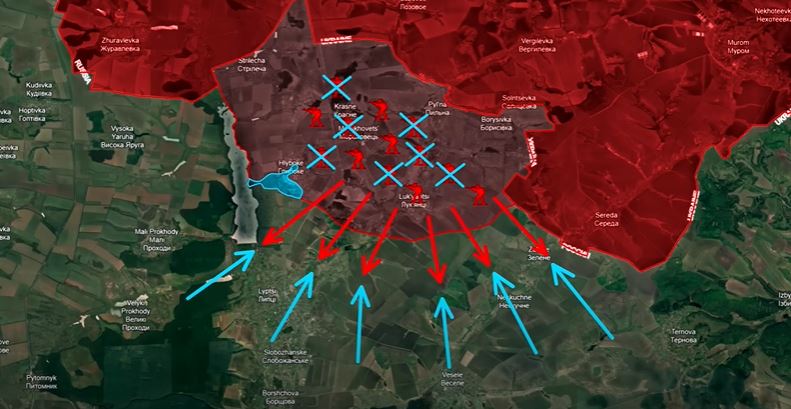
The Kharkiv front has often been neglected by the Russian command, resulting in a shortage of reinforcements from regular troops. This neglect led to the deployment of foreign mercenaries from Africa, speculated to be associated with the Wagner Group. The Wagner Group previously maintained a substantial presence in Africa, with numerous military instructors and recruitment centers across Central Africa.

However, it turned out that these were African recruits of the Russian army. While they are not part of the Wagner Group, it is highly likely that the Russian army is using Wagner's infrastructure in Africa for recruiting mercenaries. Additionally, many former Wagner fighters have joined the Russian military in units like Storm-Z, suggesting that Wagner instructors in Africa have likely participated in organizing the African Corps.
The Russian government is actively trying to attract individuals from Africa and developing nations by offering a monthly salary of two thousand two hundred dollars, health insurance, and Russian citizenship for recruits and their families. This offer is highly appealing to many people from underdeveloped regions, such as Burundi, Congo, Nepal, and Sri Lanka, where the average monthly income ranges from fifteen to fifty dollars.
The Russian Africa Corps, established in December 2023, comprises around two thousand fighters, including officers, soldiers, experienced mercenaries, and new recruits, many of whom previously served in Wagner. According to British intelligence, the Russian command deployed the Africa Corps to the Belgorod region in April. This deployment was later confirmed by footage from the area.
In one such video, an African mercenary, likely separated from his squad, is detected by a Ukrainian drone. The mercenary helplessly tries to defend himself from the drone using a wooden stick.
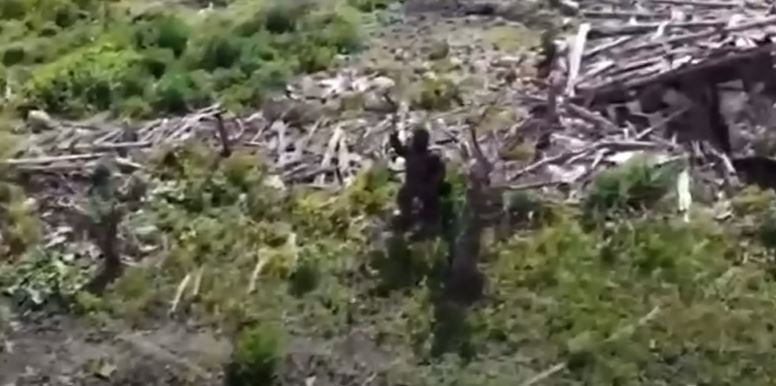
Such irregular and ineffective actions by foreign mercenaries result from inadequate training and instructions, amplified by a significant language barrier. The full uncensored fight between the African mercenary and the Ukrainian drone can be found on Reporting From Ukraine's Telegram channel.
However, even if we set aside the low quality of African mercenaries, even the deployment of the entire African Corps of 2,000 servicemen will still not be enough to hold the lines in the Kharkiv direction. To address the manpower shortage, the Russian army has expanded its recruitment campaign to Sri Lanka. Sri Lankan and Russian delegations, including Russian Deputy Defense Minister Alexander Formin, have met to discuss the involvement of Sri Lankan nationals in the Russian army. It is known that over two hundred Sri Lankans have died in the conflict so far, and ongoing Russian recruitment efforts could attract many more mercenaries. Additional footage confirms the deployment of Sri Lankan mercenaries, including one fighter who was fortunate enough to be captured.

The recent summit between Putin and Kim Jong-Un may indicate further deployment of foreign fighters to the front in Ukraine, particularly in the Kharkiv direction. Although North Korean troops or mercenaries have not been deployed, Russia has used North Korean Hwasong ballistic missiles to strike Kharkiv city. In addition to the missiles, a substantial quantity of artillery shells was supplied to the Russians. However, the quality of these North Korean shells is inferior, as most have been in stock for decades and have become unusable.
Some Russian soldiers have reported that their artillery is suffering from barrel wear, which isn't being replaced, leading to devastating gun failures. In one of the videos from the area, a Russian artillery piece is seen exploding due to barrel wear, causing a detonation that destroyed it and tossed the gun aside. Additionally, the artillery pieces that functioned correctly often fired defective shells due to inconsistent amounts of gunpowder.
This inconsistency can prevent the shells from exploding or impacting the target, rendering Russian artillery shelling ineffective. To compensate for the lack of functional artillery pieces and shells, the Russian command had to quickly redeploy artillery from the Kherson direction to Kharkiv to prevent a collapse of the front. Overall, Russians are running low on manpower and artillery shells, leading to desperate attempts to replenish losses with low-quality mercenaries from Africa due to a lack of general reinforcements in this direction.
Such a development of the situation can lead to a window of opportunity for the Ukrainians to launch a decisive offensive against Russian forces north of Liptsy to push them out.
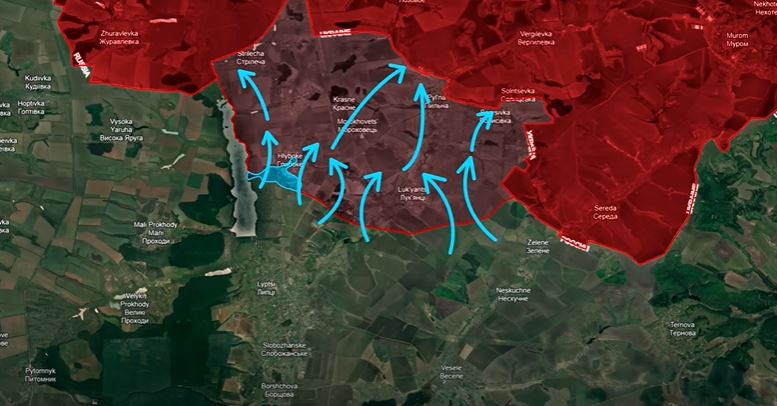
In our daily
frontline report, we pair up with the military blogger Reporting from Ukraine to keep you informed about what is happening on the battlefield in the Russo-Ukrainian war.
